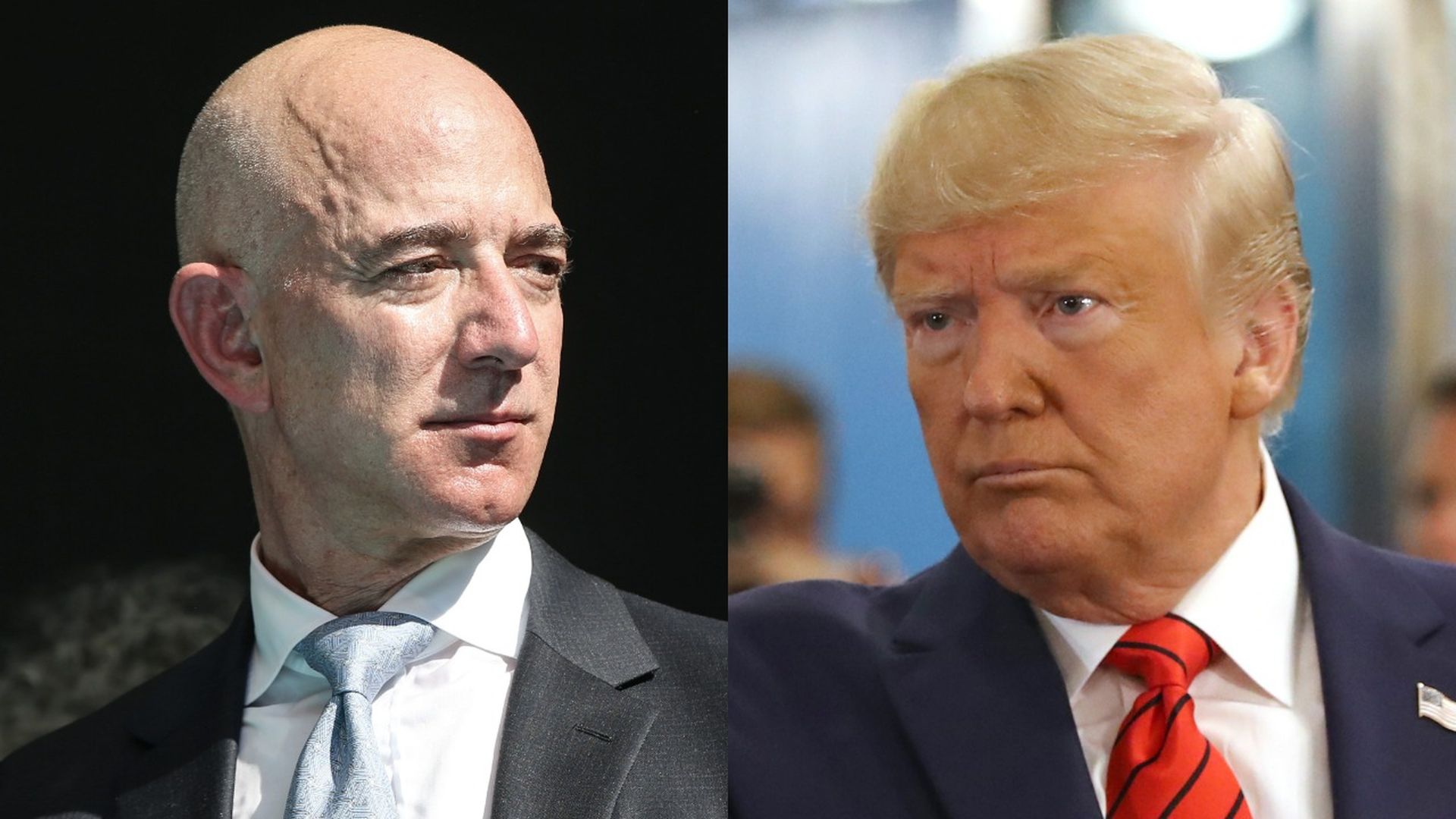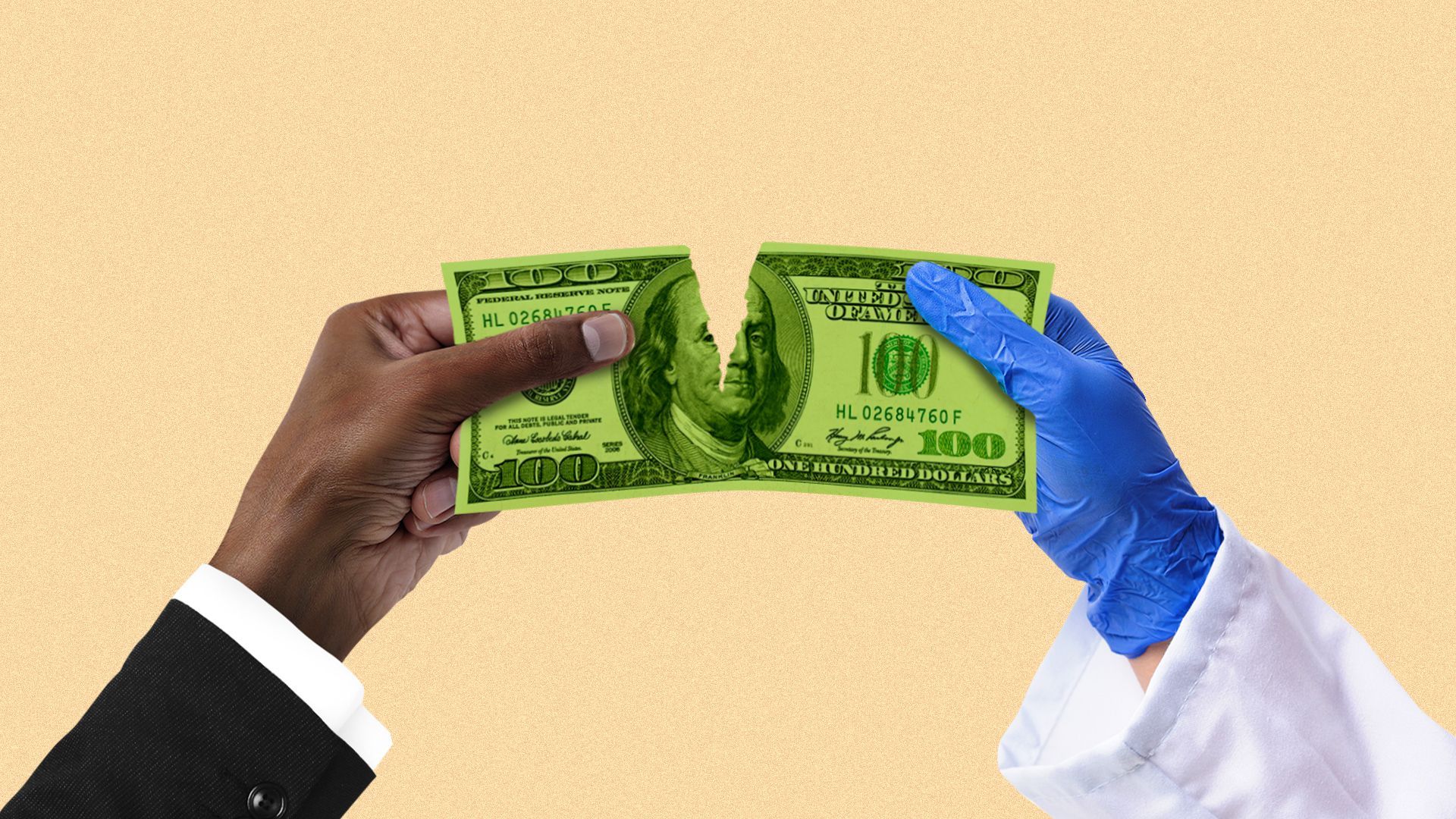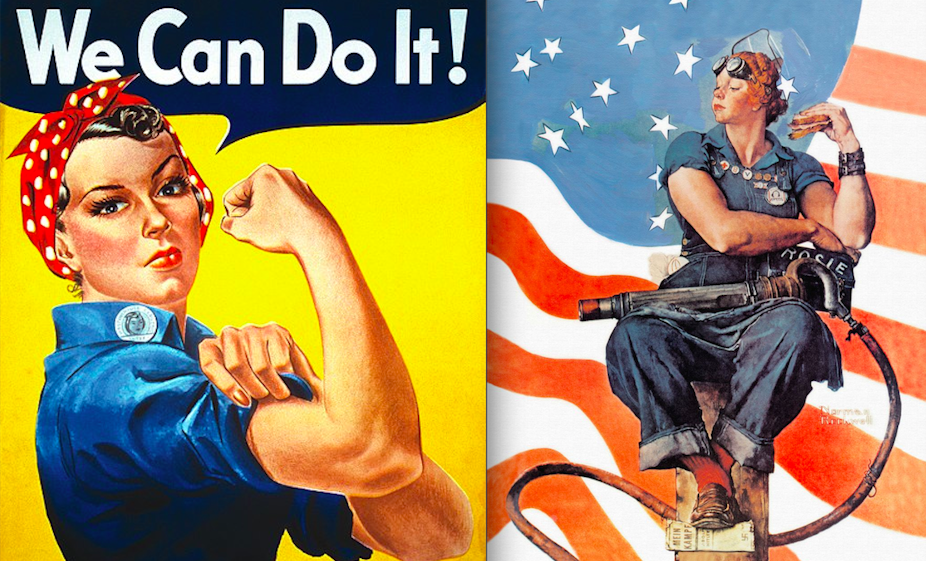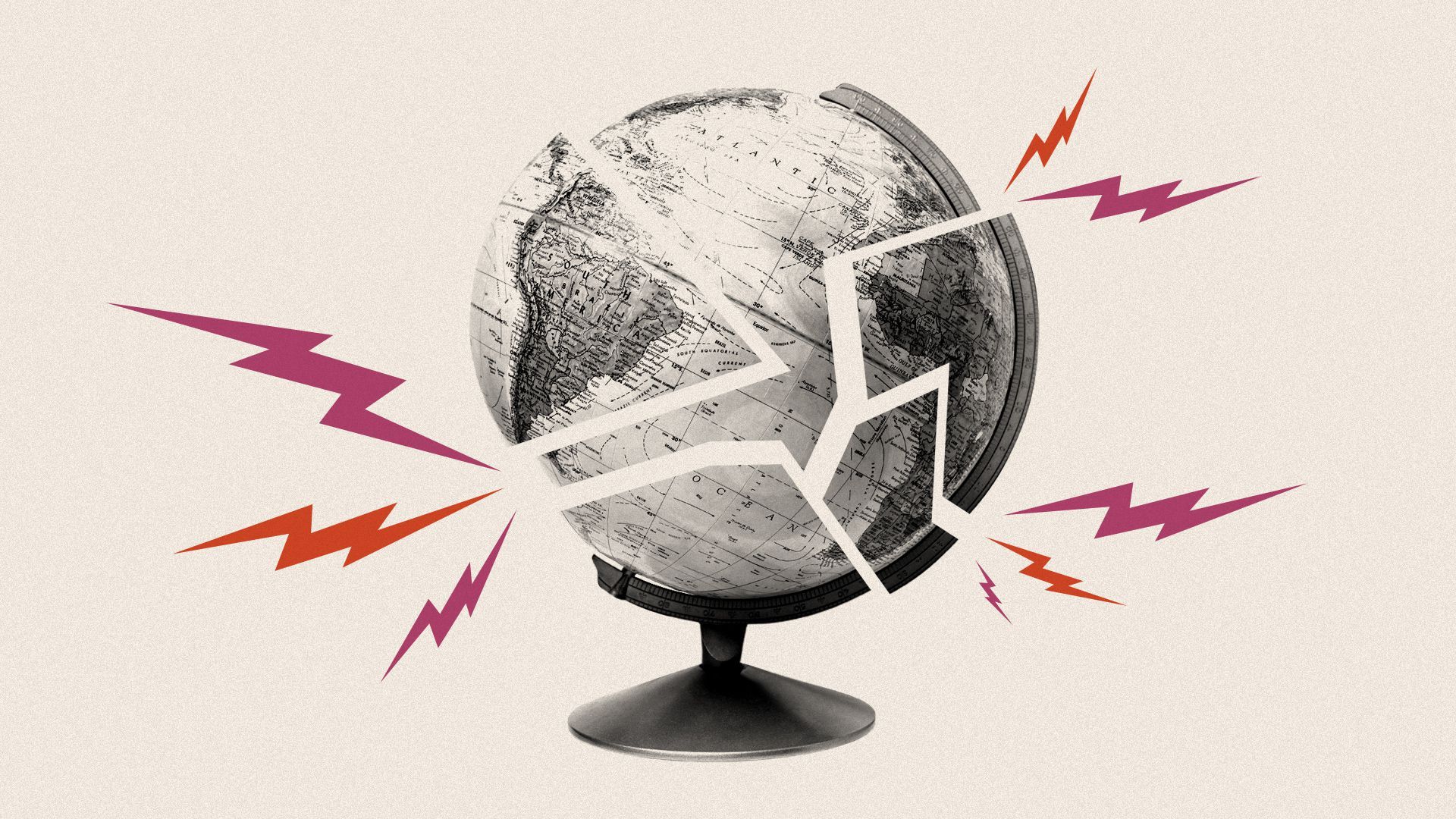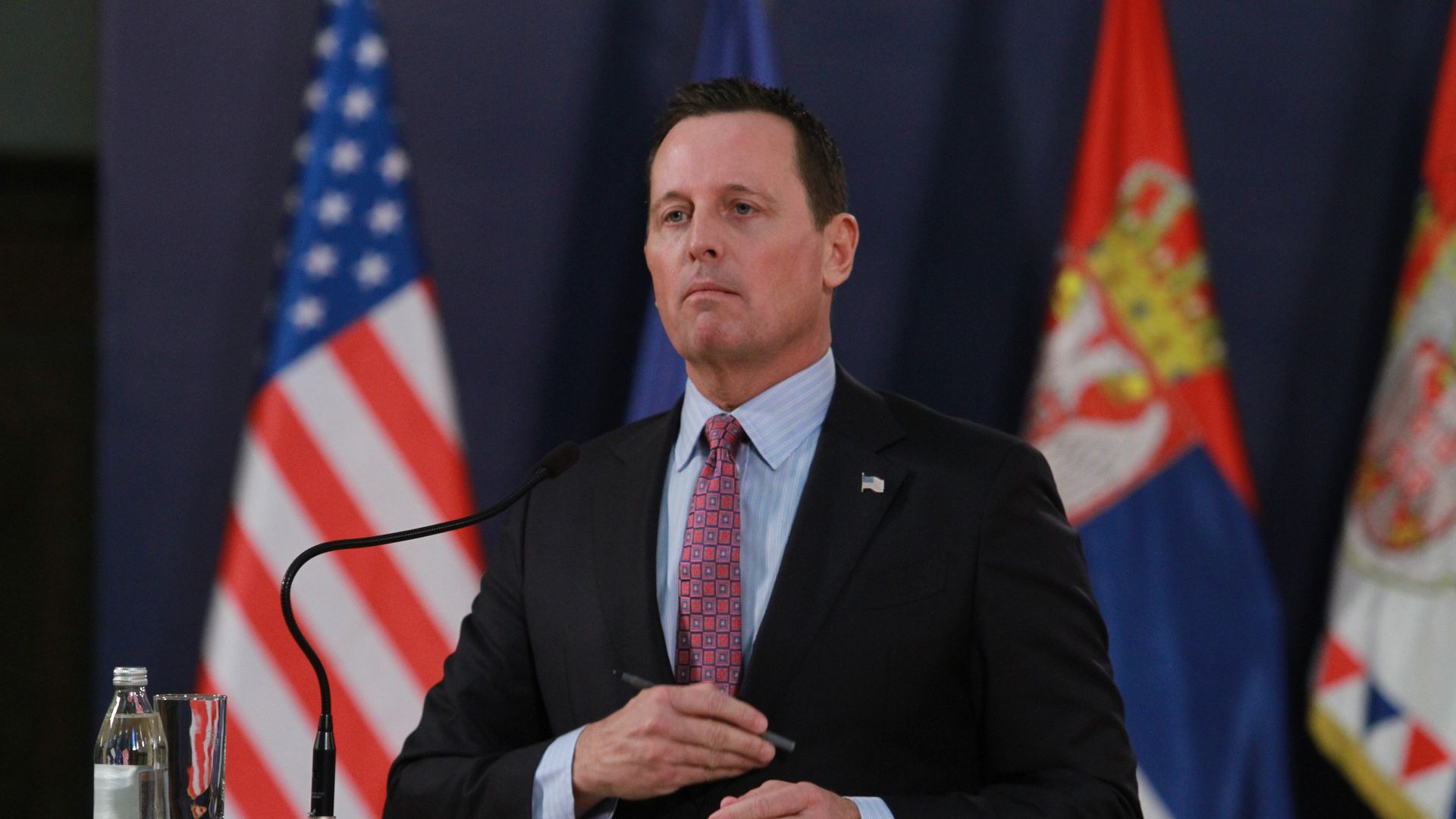Three companies move forward in bid to bring astronauts to the Moon
Miriam Kramer AXIOS APRIL 30,2020

Artist's illustration of astronauts on the Moon. Photo: NASA
NASA today announced three companies — Jeff Bezos' Blue Origin, Dynetics and Elon Musk's SpaceX — will continue developing their lunar landers designed to bring astronauts to the Moon.
Why it matters: In spite of the coronavirus pandemic, NASA is moving forward with its plans to send humans back to the surface of the Moon by 2024 as part of its Artemis program.
The big picture: These kinds of government contracts are key for space companies hoping to make it through the economic downturn caused by the coronavirus pandemic. Those types of funds could help them stay afloat as other means of financing dry up.
Details: Blue Origin's system also brings together Lockheed Martin, Northrop Grumman and Draper Labs — powerhouses in the space industry — to develop the key components to take astronauts down to the lunar surface.
SpaceX will use Starship — a craft currently in development that the company hopes to one day use to send people to places like Mars — to bring crew and cargo from orbit around the Moon to its surface.
Dynetics' design hinges on a structure that can both land on and ascend from the surface of the Moon.
NASA is awarding a combined total of $967 million to these companies.
“This is the first time since the Apollo era that NASA has direct funding for a human landing system, and now we have companies on contract to do the work for the Artemis program."— NASA Administrator Jim Bridenstine said in a statement
What's next: The companies will now continue to study and develop their plans over the coming months before NASA starts to make decisions about which landing systems will continue on in the process.
"We've got all the pieces we need," NASA's head of human spaceflight Doug Loverro, said during a press call Thursday.
